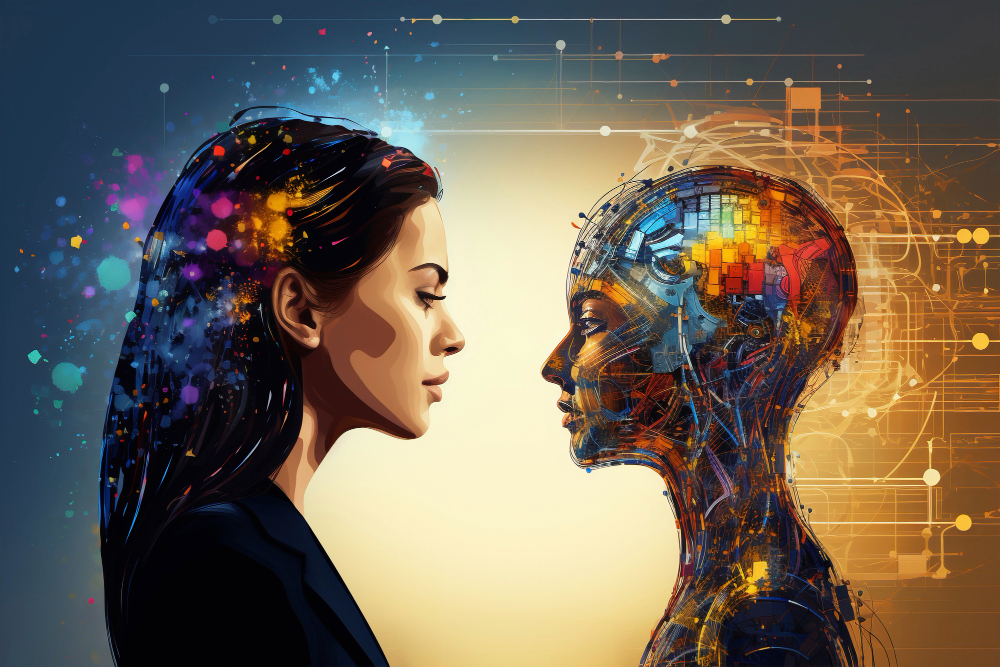
In the rapidly evolving landscape of artificial intelligence (AI), the United States has been a fertile ground for groundbreaking technologies that are transforming how we work, live, and interact with the world around us.
From enhancing creative processes to revolutionizing healthcare, these 12 Artificial Intelligence tools are at the forefront of innovation, offering capabilities that were once the stuff of science fiction.
1. GPT-4 by OpenAI
Developed by OpenAI, GPT-4 is the latest iteration of the Generative Pre-trained Transformer series, pushing the boundaries of natural language processing. This AI model can generate human-like text, translate languages, answer questions, and even write code. Its versatility and advanced understanding of context make it an invaluable tool for writers, developers, and researchers seeking to harness the power of Artificial Intelligence to augment their work.
2. DALL·E 2
Also from OpenAI, DALL·E 2 is a revolutionary Artificial Intelligence that generates highly detailed and contextually relevant images from textual descriptions. This tool has unlocked new creative possibilities for artists, designers, and marketers by allowing them to bring their wildest ideas to life with just a few keystrokes. Whether it’s creating digital art or conceptualizing product designs, DALL·E 2 is redefining the boundaries of visual creativity.
3. DeepMind’s AlphaFold
While not exclusively a US innovation, AlphaFold by DeepMind (now under the umbrella of Alphabet, a US-based company) has made significant waves in the scientific community. This Artificial Intelligence has solved the complex problem of protein folding, predicting the 3D shapes of proteins with remarkable accuracy. AlphaFold’s breakthroughs are poised to accelerate drug discovery and deepen our understanding of diseases, representing a monumental leap forward in biomedical research.
4. ChatGPT
Another gem from OpenAI, ChatGPT is an AI chatbot that has taken the world by storm. Its ability to engage in human-like conversation across a myriad of subjects has opened up new avenues for customer service, education, and entertainment. From helping users learn new languages to offering therapy and legal advice, ChatGPT’s applications are as diverse as they are impactful.
5. Tesla Autopilot
Tesla’s Autopilot is redefining the future of transportation with its advanced AI-driven autonomous driving system. By continuously learning from vast amounts of data collected from Tesla vehicles worldwide, Autopilot improves its driving decisions, making self-driving cars a reality. This technology not only promises to increase road safety but also to revolutionize how we think about personal and public transportation.
6. Watson by IBM
IBM’s Watson has been a pioneer in the field of Artificial Intelligence for years, applying advanced machine learning and natural language processing capabilities across various sectors. From healthcare, where it assists in diagnosing diseases and recommending treatments, to finance, where it helps in risk assessment and fraud detection, Watson’s versatility demonstrates the wide-ranging impact AI can have on society.
7. NVIDIA’s Artificial Intelligence Platforms
NVIDIA, widely recognized for its graphics processing units (GPUs), has also been at the forefront of AI innovation with its comprehensive Artificial Intelligence platforms. These platforms, including CUDA for parallel computing and the TensorRT SDK for deep learning inference, are empowering developers to build sophisticated AI models for applications ranging from autonomous vehicles to virtual reality. NVIDIA’s AI tools are not just enhancing computational efficiency but are also making Artificial Intelligence more accessible to researchers and developers globally.
8. Waymo’s Autonomous Driving Technology
A subsidiary of Alphabet Inc., Waymo is pioneering the future of autonomous driving with its advanced self-driving technology. Leveraging a combination of Artificial Intelligence software, sensors, and hardware, Waymo’s vehicles can navigate complex urban and suburban environments with minimal human intervention. This technology aims to improve road safety, reduce traffic congestion, and provide mobility solutions for those who cannot drive.
9. Neuralink’s Brain-Machine Interfaces
Neuralink, co-founded by Elon Musk, is developing ultra-high bandwidth brain-machine interfaces to connect humans and computers. While still in the early stages of development, Neuralink’s technology has the potential to revolutionize treatments for neurological disorders, enhance human cognitive abilities, and even allow for direct communication between Artificial Intelligence and the human brain. This ambitious project could blur the lines between humanity and artificial intelligence, opening up unprecedented possibilities for human enhancement.
10. GitHub Copilot
Powered by OpenAI’s Codex, GitHub Copilot is an AI pair programmer that suggests code snippets and entire functions in real-time, directly within the integrated development environment (IDE). Copilot can dramatically boost productivity by assisting developers in writing code faster, discovering new libraries, and even learning new programming languages. Its ability to adapt to the user’s coding style makes it an invaluable tool for software development.
11. Zipline’s Medical Delivery Drones
Zipline, although initially started in the US, operates globally and utilizes AI in its autonomous delivery drones to transport medical supplies, including blood, vaccines, and medications, to remote and hard-to-reach areas. This technology ensures timely and efficient delivery of critical healthcare supplies, potentially saving lives by overcoming logistical challenges that plague many parts of the world.
12. CRISPR Gene Editing Tools Enhanced by Artificial Intelligence
While CRISPR technology itself is not an Artificial Intelligence tool, its application has been significantly advanced by AI algorithms, particularly in the United States. Artificial Intelligence is being used to predict the outcomes of gene edits, design more effective CRISPR strategies, and understand the complex interactions between genes. This convergence of biotechnology and artificial intelligence is accelerating the pace of genetic research, with vast implications for medicine, agriculture, and bioengineering.
Conclusion
These twelve softwares from the US underscore the vast and varied impact of artificial intelligence across multiple domains. From enhancing human capabilities to solving pressing global challenges, Artificial Intelligence continues to be a pivotal force of innovation. As these technologies develop further, they promise to bring even more profound changes to our world, embodying the endless potential of AI to improve and enrich our lives.



